Sacred Chickens
Menu
SACRED CHICKENS
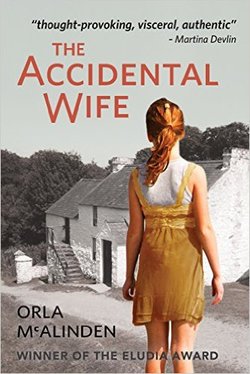 The Accidental Wife by Orla McAlinden Review by Julie Carpenter The Accidental Wife is a remarkably well-developed collection of stories set against the backdrop of Northern Ireland’s Troubles. Each story is the expression of a single player in a complicated history, contributing to the larger story that surrounds them all. The stories radiate from the center of the McCann family and the author moves deftly between characters and generations; the well crafted result is that every story stands on its own but taken as a whole the collection is every bit as satisfying and hard to put down as a novel. McAlinden does not write like a novice, though this is her first story collection. She changes perspective and voice skillfully so that each character becomes his or her own person. McAlinden handles each change of perspective like a pro, even nailing the notoriously difficult second-person point of view to involve the reader deeply and immediately into the experience of a child. The dialect is also at once authentic and understandable, plunging the reader into the setting and the atmosphere of the time and place. The beauty of the book is the author’s ability to see stories in otherwise ordinary objects and events - from passing through a checkpoint into Belfast to a too-large hayshed built in a farmer’s field. It is in these ordinary things that the life of the family becomes incarnate. Even the small details, like a pack of cigarettes or a cup of tea have weight and importance, as they often do in the memories of our own lives. And I think in the end that’s the real beauty of the book. Like all the best books, this one delivers the universal through the particular. In the circumstances of the McCann family, we see not only their troubles and triumphs, we see ourselves. This book comes highly recommended. Purchase The Accidental Wife  Orla McAlinden is an award-winning fiction writer from Portadown, Northern Ireland, now living in Kildare. She was a Greenbean Novel Fair finalist (Irish Writers Centre), and has been awarded the Cecil Day Lewis Emerging Writers Bursary by Kildare County Arts Service. More information at orlamcalinden.com.
0 Comments
 This Friday's Book Review will feature Orla McAlinden's new book The Accidental Wife. She is an award winning Irish author (her new book won the Eludia award in 2014) and she has written several book reviews for Sacred Chickens. The following blog post is published here with her permission. It's a lovely rumination on writing and grief. Please check back in for the review and the link to her book on Friday. The link to her new book is also found throughout and at the end of this essay. Guest Post by Orla McAlinden Burial to book launch… I never intended to write a book (or three) it just kind of happened. Now that the launch for my first published book, entitled The Accidental Wife is organised and confirmed for Wednesday 21st September, in Barker and Jones Bookshop Naas, I thought I’d share an essay I wrote a few years ago about how the floodgates opened and the words poured out. I should of course have shared this two weeks ago, on my dad’s birthday, but that’s me…the genius idea always comes a bit too late. So here’s the essay, written three years ago when I hardly knew how to switch on a laptop! My father’s parting gift 365 days ago, I had no idea that one year later I would have written a memoir. I have always known that I can make words leap and soar and bounce around, but I never felt I had anything about which to write. “How many books about Teenage Mutant Ninja Vampires does the world actually need?” I wondered. My father and I, 1970s Armagh, clip-clopping along. We shared many interests: a passion for horses, history, old books, peace and quiet. These shared hobbies drove us out into the highways and by-ways of rural Armagh. He taught me to ride. He walked beside me, holding a long rope, for years, until I was judged safe, and released. During these long, self-indulgent trips a relationship grew that transcended the hero-worship small girls have for their fathers. We were friends. My father died a year ago today, after an accident from which he was recovering slowly but satisfactorily. We re-arranged the furniture, on Friday, to facilitate his return from hospital on Monday. He died on Sunday morning. The early, numb weeks passed in a straightforward fashion. I had four very young children, and a husband to organise. Women whispered at the school gates. “Isn’t she doing well? Isn’t she coping great?” I wondered what all the fuss was about. Friendly people commiserated and I would reply, “Yes indeed, he was a very elderly man. Yes, it was for the best. Yes, things could be a lot worse.” I really thought I meant it! Afterwards? What I’d call ‘the lost weeks’. I would spend a morning full of murderous rage and frustration; tearing the house apart looking for my wallet, only to find it in the salad drawer of the fridge. I would return from Tesco to feed my family of six for a week, with a half-dozen unripe, unwanted mangoes, and no milk. I leapt to my feet, cursing, late for the school run, having sat down for five minutes, two hours previously. As always, in times of crisis, I turned to the written word. I ploughed through heavy tomes by eminent psychologists and sociologists. Eventually I landed, by chance, upon ‘You’ll get over it’ by Virginia Ironside. She was full of wise advice and sympathy. I was not going mad; I was grieving! A little secret tribute On 27th July 2012, I opened my rarely used laptop. I would write a story, a family history. It would be a secret tribute to my father. I would show nobody. Three hours later, I looked at the work. It was a dusty, half-remembered family legend, passed on to me, probably accidentally, while he re-told and embellished it for his own friends. The piece was finished. It was whole and complete. I did not think, or pause for breath. I submitted it everywhere, I didn’t know any better, didn’t know that you shouldn’t submit your first story, didn’t know it’s supposed to be rubbish and live in a drawer forever. It was published in January 2013, by The Chatahoochee Review in Georgia, USA. Then I couldn’t stop The writing continues. I sit down alone. Two hours later I read my new story. It spills out, fizzing, on to the screen, while I type, five or six disorganised fingers flailing, struggling to keep up with the words. Fiction, scripts, memoir, family tales. A precious child-free hour, snatched here and there, equals a thousand words vomited into the open maw of a blank screen. During the other 160 hours per week the stories jostle and fight for position, shrieking to be released next from their incarceration. “Write me!” they plead. “Tell me.” I edit in the kitchen, lunch-boxing a thousand ham sandwiches or stirring bolognese. Insomnia is my constant companion. I lie unquiet in the small hours; stories flash and streak across my mind until I long to clamp my hands over my brain’s ears, and scream “Enough! Let me be!” My stories and memoirs whirl across the internet; a prize here, a shortlist there, hundreds of rejections. A short story which has arrived in a blur of busy fingers, unprovoked, uninvited, lurks in my hard drive. Each time I log on, that story- a young woman deceived by an American GI during the war- screams its rage and its indignation. “I am not a story!” it yells; “I am a PROLOGUE, get me out of here!” And the tears have come too. I cry constantly. I cry, listening to the news. I sob at adverts for cheese, and at Tom and Jerry. I weep when my children laugh. Thank God for Virginia Ironside! How long can this exquisite torture last? If the beehive of buzzing words sinks back into hibernation, leaving me sane again, I will be ever grateful that I, briefly, wrote. My hope is that I have been permanently blessed; my father’s parting gift. Deep breath, everyone Wow! I really wrote that. The extravagance of the words and the melodrama makes me cringe. Reviewing that piece makes me realise how far I’ve come, in a fairly short space of time. Endless, hypercritical revision has cut thousands of adjectives, adverbs and exclamations out of The Accidental Wife. If I wrote that essay today it would be half as long, and a lot less hysterical. But the American GI has sneaked into The Accidental Wife, and the world can breathe more easily, because the long-form memoir is safely where it belongs, on a hard-drive, never to see the light of day. 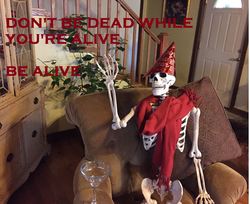 An interview with Uncle Morty As some of you may know, Uncle Morty, is Sacred Chickens’ best loved (and…okay…only) blogging skeleton. He mysteriously came to stay with us after a Halloween party a few years ago and somehow never left. Morty doesn’t like to talk about himself too much. He’s been a little close with his history, although he does occasionally dispense his wisdom in the form of a blog post or a pithy saying. But for the first time, he’s agreed to sit down and talk about himself. Q: The first thing I really must ask is why you have a tendency to talk about yourself in the third person? Some people find it a little disconcerting. Maybe even off putting. A: Well, your Uncle Morty hasn’t had a very comfortable relationship with himself since he lost his suit of skin. Without a heart beating inside these old bones and a head full of matter and electricity, Uncle Morty hasn’t exactly felt like a “self.” He experiences consciousness in a much less physically unified way you or your readers. It’s difficult to explain for him to explain exactly what he means across such a wide existential gulf. But if you think it will help insure that your readers are not “put off,” the poor delicate flowers, your Uncle Morty, excuse me, “I” can try to use the first person more often in my writing. Of all people, I understand that concessions must be made to the flesh. Q: Question number two is something that I’ve never really been comfortable enough to ask you and even now I’m not sure how to phrase it. Ummm…can you help the reader understand your “condition”…I guess what I’m trying to say is… A: I get what you’re trying so eloquently to say. (For those of you reading who may not know your Uncle Morty so well…please infuse the previous sentence with a healthy dose of sarcasm). Quit pussy footing around. I’m dead. That’s my condition. I’m not really permitted to go into the metaphysics of my state (nor would you have any hope of understanding the technicalities involved.) But I will say this: it’s certainly not a reward. I prefer to think of it as not exactly a punishment either. It was presented to your Uncle Morty as an opportunity – a sort of correction if you will. And before you ask…I would prefer not to answer questions about my previous embodiments at this time. I will dispense such information on a need to know basis. And I sincerely doubt that anyone will need to know anytime soon. I would hate for the information to be...misapplied. Q: I wasn’t actually trying to be nosy about your previous life. So let’s change the subject back to your current…errrr….existence. How did you end up here at Sacred Chickens farm? No one at the party can exactly remember asking you. Not that we weren’t happy to see you, of course. It was Halloween, after all. A: The Universe has a strange way of working itself out, doesn’t it? And by that I do not mean that it has a plan. Merely that it has a strange way of working itself out. You may take that as you like. I do love bonfires and marshmallows by the way. That was delightful. Although the beer and condiment selections left something to be desired. Could we please move on to the next question? Q: What do you see in your future? Anything you want to accomplish? A: Well, I’m coming off a difficult period physically, literally losing my head for a bit, as you well know. I think it’s definitely time for Uncle Morty to begin sharing his wisdom again. I’m also thinking of starting an advice column for the living and perhaps writing my Automortography. Also, I’d love to update my wardrobe and spend more time meditating. My favorite hobby, startling people, will take a bit more social effort (and possibly skill) on your part. In the meantime, perhaps I’ll take up knitting. Incidentally, if anyone craves Uncle Morty’s advice or simply to share a story with him...errr... me, please send your clearly stated fears, problems or opinions to [email protected] with Mort-uary in the subject line. Q: Anything else you want to say to the readers? A: The same advice I always give to fleshlings. Don’t be Dead while you’re Alive. Be Alive. You’ll be resting your bare skull on a guest room pillow and being asked to write blog posts soon enough. 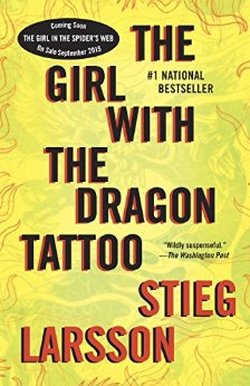 THE GIRL WITH THE DRAGON TATTOO by Stieg Larsson Review by Jarad Johnson While many of you may have seen the movie or movies (one Swedish, one American) the novel is worth your time as well. If you missed this phenomenon the first time out, here’s your chance to make up for it. The award winning book is detailed and complex. This is an especially dark story, full of murder, mystery, sex, betrayal, and much more. It revolves around the disappearance of Harriet Vanger, the daughter of one of Sweden’s wealthiest families. After forty years, her elderly uncle continues to obsess over her mysterious disappearance.” He requests the services of Mikael Blomkvist, crusading journalist recently disgraced by scandal, hoping that he can solve the case. He is aided by the reclusive punk computer hacking prodigy Lisbeth Salander, who is dealing with her own trauma. Together, they unearth a vein of iniquity and corruption. This book was dark and gritty without being affected, and genuinely intriguing.(I stayed up half the night to finish it). I had heard of it before in passing, so I knew what to expect from it. Or, I thought I did. I was surprised mainly by the level of sexual violence in this novel (for that reason, I would say that anyone sensitive to that topic should not read this because it is quite explicit); furthermore, at the beginning of each Salander and Blomkvist are an unlikely pair, drawn together by their need to solve the crime. The relationship between the two characters is complicated by their pasts and that helps keep the story interesting. But it’s the movement toward the intense, sinister climax, that will keep you reading. There’s a reason it won the several awards for crime thrillers. The book is well-written and compelling and it will keep you interested whether or not you have seen the movie. section of the book, there is a statistic on the level of sexual assault in Sweden. This is one of the underlying messages of the novel. The episodes of violence are shocking, revealing the story’s dark center. Salander must overcome the trauma of assault at the same time she helps Blomkvist uncover a dark secret. The supposed murder of Harriet Vanger is the main thread of this story, and it is what ties everything together. Mikael Blomkvist goes months without finding anything, and the frustration is nearly visceral, as the novel does drag a bit at that point, but this adds a touch of realism to the story . When Blomkvist begins to discover uncover the family’s secrets, the whole story starts to come together and the slow moving plot line pays off. 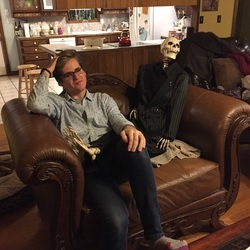 Jarad attends Middle Tennessee State University, loves tea, and tries to spend every spare second reading. Jarad is majoring in English. Bless his heart! Let's all light a candle for him and send him happy thoughts! 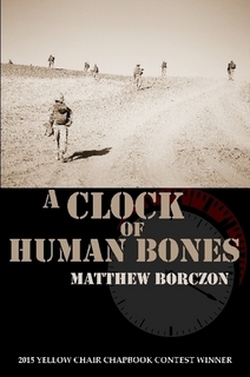 A Clock of Human Bones by Matthew Borczon Review by Julie Carpenter It almost doesn’t seem fair to write a review of this book, because any time you spend reading about it is wasted time. You should be reading Borczon’s poems instead. This is an important book, a needle-sharp distillation of the horrors of war delivered right to the soul in a short, sharp volume that has far more depth than its slight length would suggest. This book is a collection of poetry about the author’s time in a military hospital in Afghanistan, where he was deployed in 2010. The images he has extracted from his work there are visceral. His powerful words help the reader to feel his experiences and it’s a dark journey, but an important one. For those of us on the outside, who only understand war from a distance, it’s surely impossible to see the effects of war on so many of those around us who have been Just hour after hour standing in blood swallowing fear as Borczon describes it in his poem The Shit. This book won’t let you off the hook. The imagery compels empathy. You can, and should, buy the book here. |

Click Photo above to buy ebook or paperback from Amazon.
Here's the link to Barnes and Noble Or order through your favorite independent bookstore! Categories
All
|
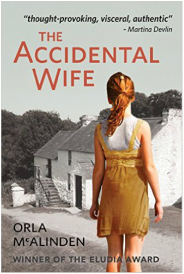
 RSS Feed
RSS Feed